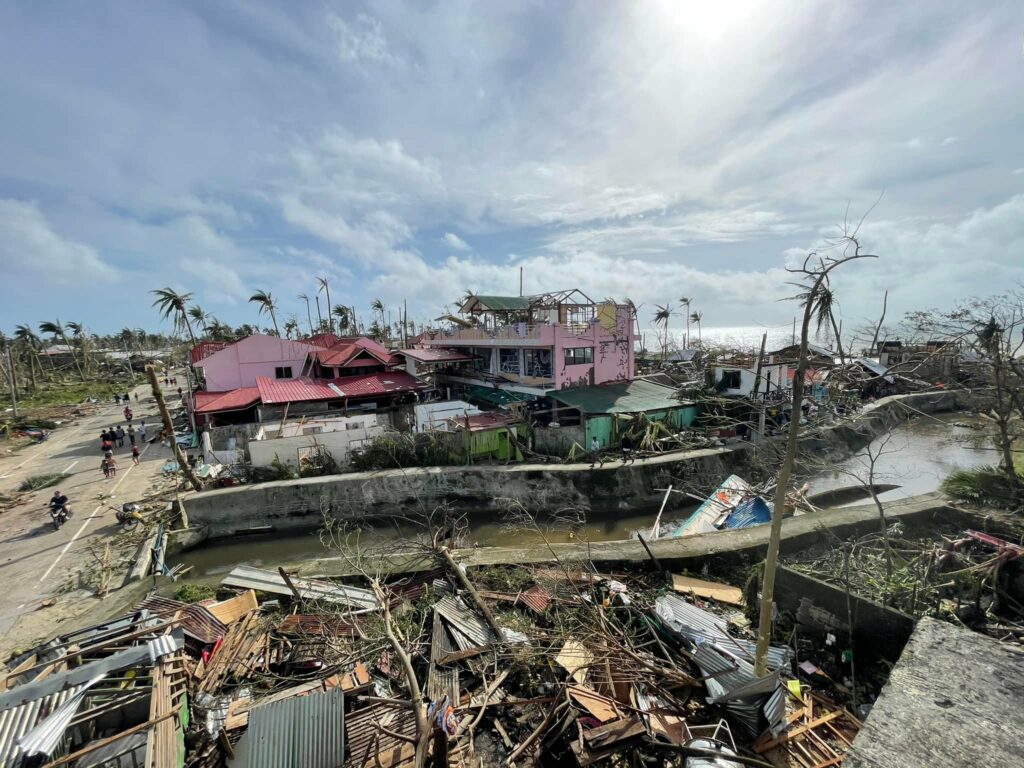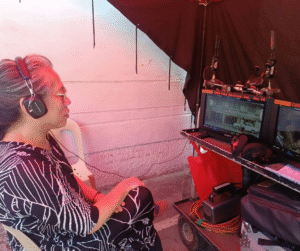By Lydia Clarke
Super Typhoon Rai, the deadly category five typhoon, has killed over 300 people in the Philippines and has injured 500 more.
More than 50 people are missing and around 490,000 people are thought to have been displaced. Filipinos have taken to social media to report the devastation, and to ask for help.
The typhoon – also known in the Philippines as Odette – has destroyed homes, flooded towns and has cut the power and communications of many areas. More deaths are expected as the rescue search continues. The clean-up is likely to be slow as some regions are cut off due to debris and waterlogged roads.
The Philippines sees around 20 storms and typhoons each year and is one of the most vulnerable places to the impacts of the climate crisis.
Massive destruction
The super typhoon crashed into Siargao Island on Thursday, 16 December, with wind speeds of around 120mph. Pictures taken by the military show destruction across the town of General Luna. The neighbouring island, Dinagat, has also been hit and houses and fields have been destroyed. Many of the houses on the Island of Bohol have been submerged, and many families have lost everything.

As the typhoon rampaged West across the Philippines, it struck many popular tourist destinations. Mindanao and the Visayas were hit, leaving locals with limited supplies of food and water. The island of Cebu was also struck. The local paper Sunstar Cebu posted on Facebook that there are long queues of people at the pier hoping to leave the city.

The destruction will impact tourism activities in the coming months, which is the main economic activity of many affected areas.
People are tweeting about their experience in the aftermath of the Typhoon. There are reports of people are sleeping on the streets and begging for food. They say communication networks are down and they are struggling to find help or contact other cities that have been impacted. Some are calling for more help, angry and worried at limited supplies of food and water.


Crisis response
President Duterte has pledged about 2 billion pesos (£30 million) in aid. The EU has donated €1.7 million.
British Ambassador to the Philippines Laura Beufils tweeted on 20 December that the UK government is contributing £750,000 to the Philippine Red Cross.

A statement released by the UN Resident Coordinator and Humanitarian Coordinator in the Philippines, Gustavo Gonzalez, stated that together with the Government authorities they are working to provide shelter, health, protection, food and other life-saving responses.
While the damage is still being assessed, the urgent priority is providing medical care for the injured and acquiring the food and water supplies needed.
Top photo credit: Kerr Alipayo Tiu on Facebook
About the author

Lydia is in her final year studying Multimedia Journalism at Bournemouth University. She is currently on placement with Tinig UK. A former member of the national swimming team, she likes to keep up with her fitness. Her other interests include fashion and baking. Lydia’s main goal in the next step of her life is to travel and learn about new cultures.













